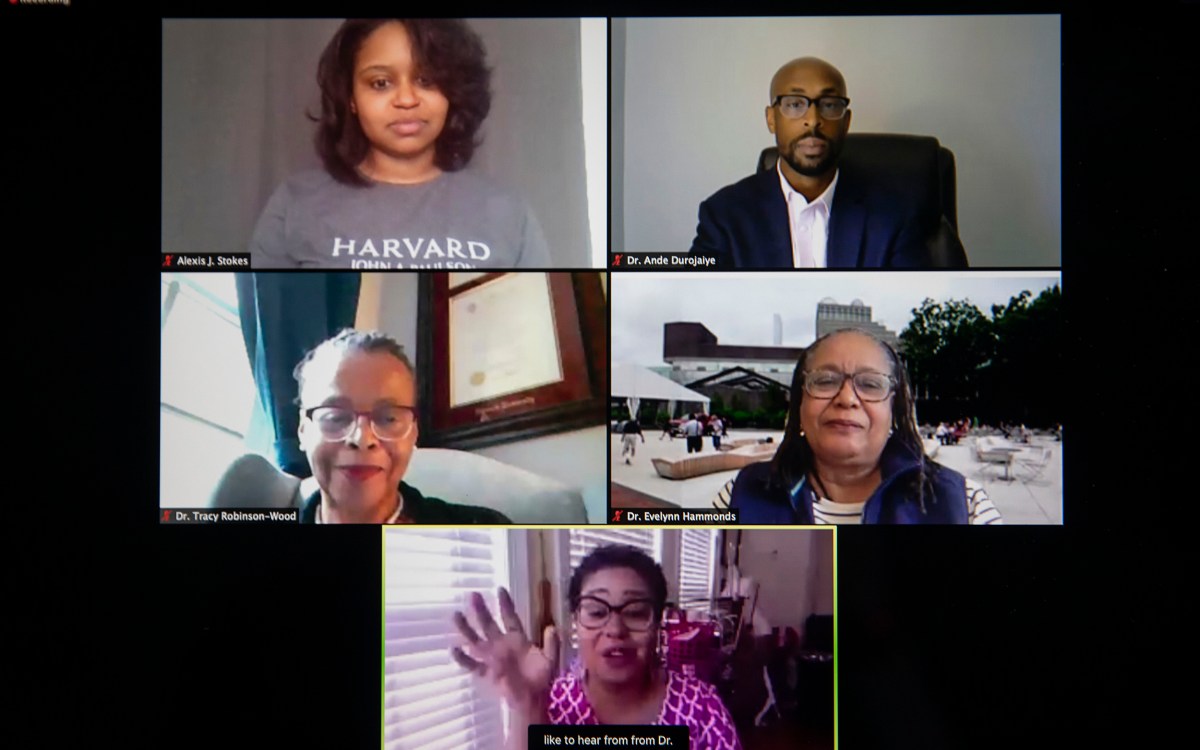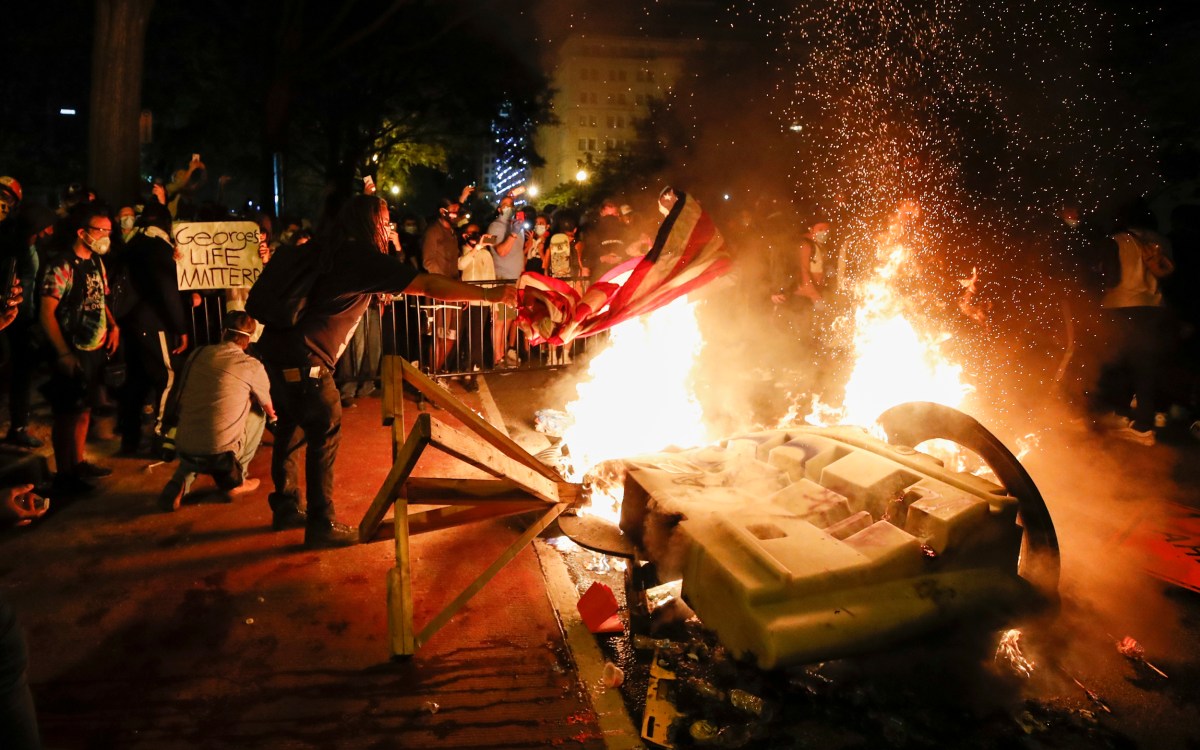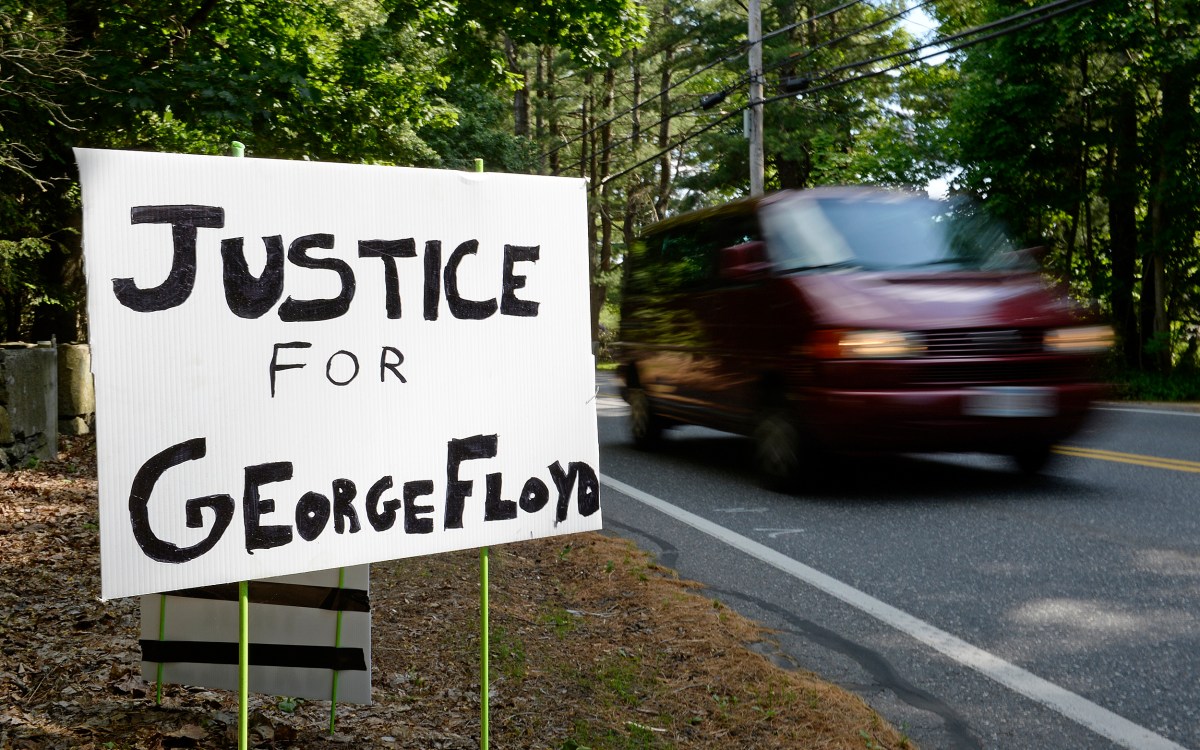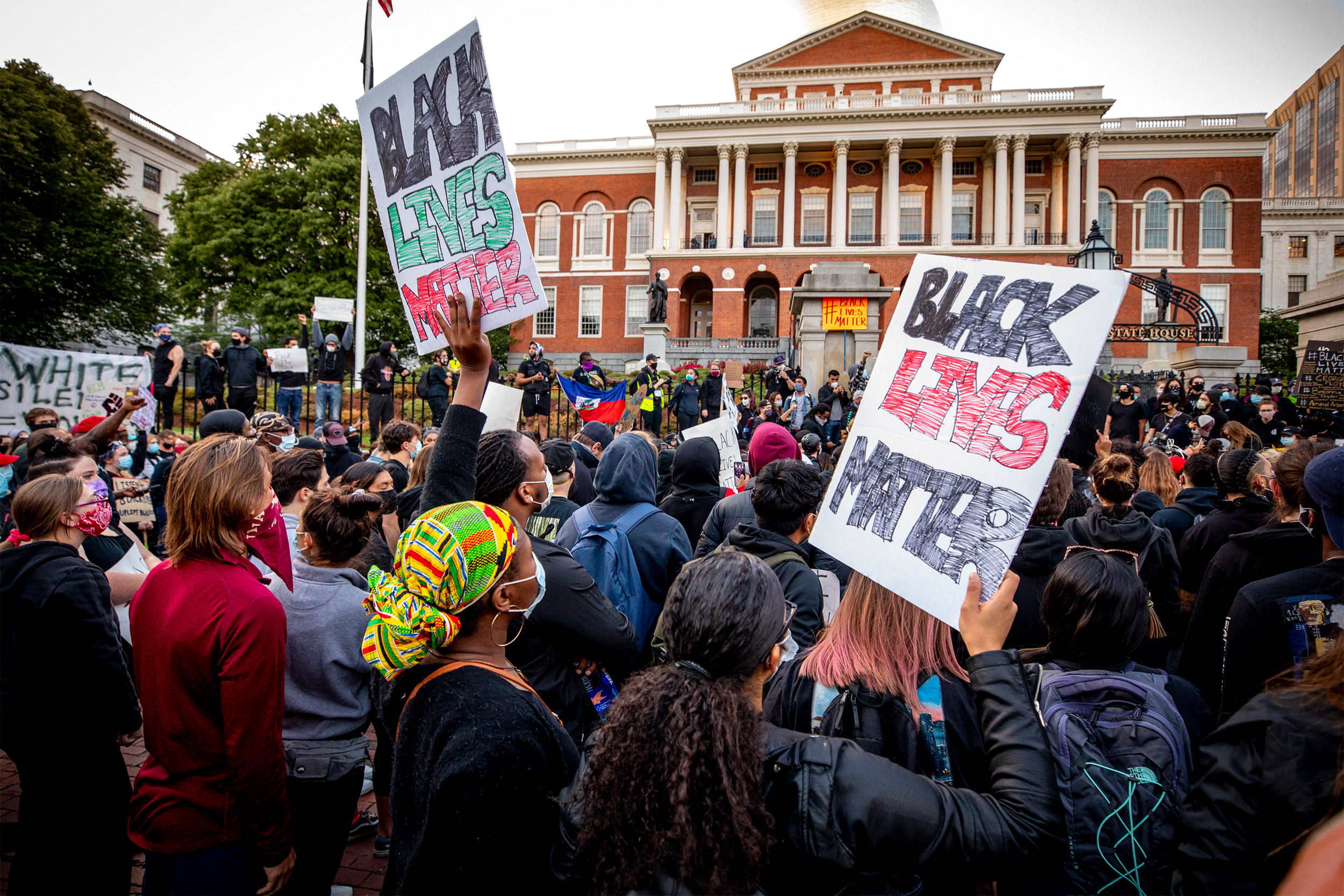
Protesters at the State House in Boston.
Rose Lincoln/Harvard Staff Photographer
How Black protest may be key to finally ending racial violence
Ash Center panel puts ‘defining moment’ of Floyd killing into context of fight for social justice
As public protests against the police killings of George Floyd and other African American men and women continue in all 50 states and hundreds of other countries, scholars are looking to place this moment in the context of the historical struggle for social justice. On Tuesday, “Black Lives, Protest, and Democracy,” an online discussion hosted by the Kennedy School’s Ash Center for Democratic Governance and Innovation, reached from the roots of institutional racial violence into its current manifestations, particularly in education and public health.
Moderated by Megan Ming Francis visiting associate professor of public policy at the Kennedy School, the panel brought together Rhea W. Boyd, M.D., M.P.H. ’17, FAAP, a pediatrician as well as a medical educator; Kaneesha Johnson, a Ph.D. candidate in government; and Leah Wright Rigueur, RI ’18, associate professor of public policy at the Kennedy School. The discussion may be viewed on YouTube or the Ash Center site.
In what she called “a defining moment in history,” Francis opened the discussion with an overview of the nation’s long history of institutional racial violence that goes back to Reconstruction. She noted that after the Civil War, most Southern states passed racially biased laws “to entrap Black people,” and “practiced discriminatory policing” that included the use of violence and increased incarceration, a pattern that would spread through the South and the rest of the nation.
“Blacks have been fighting for the right to live … forever,” said Megan Ming Francis, moderator of “Black Lives, Protest, and Democracy.”
Photos by Kris Snibbe/Harvard Staff Photographer
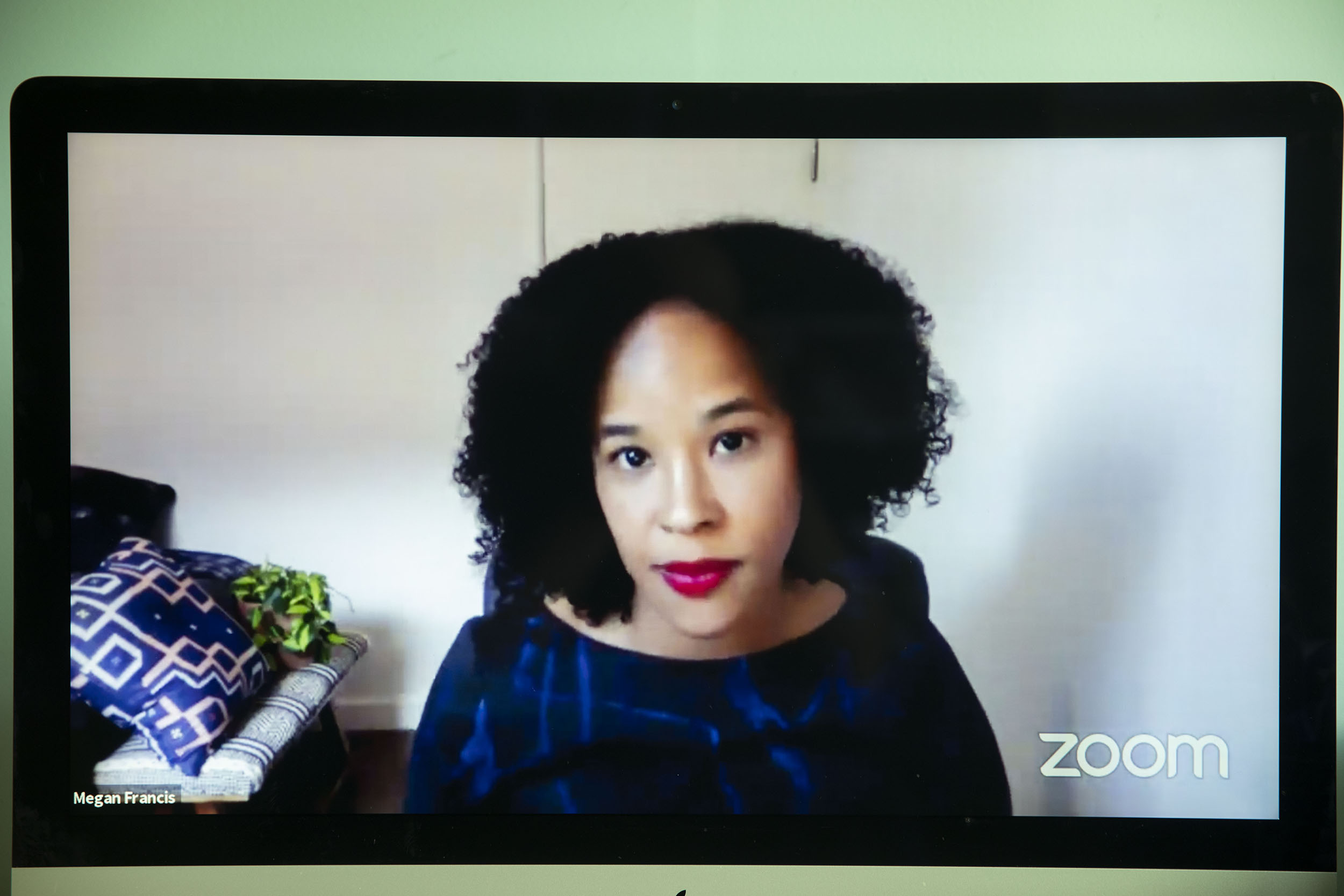
“Blacks have been fighting for the right to live … forever,” she said, citing the history of attempts by the NAACP and other activist organizations to pass laws to protect Blacks against lynching and mob violence, followed by years of protest against entrenched inequities. “It’s not just about police violence. It’s about so many different institutions in this country that have failed Black people.”
Rigueur elaborated, providing a larger cultural context for the roots of contemporary Black protest.
“The protests we see now are about the overlapping failures of America,” she said. Citing the failures of capitalism (“George Floyd was in Minneapolis looking for work when he was murdered”) and the health care system (“George Floyd had COVID-19 in his lungs when he died”), Rigueur said that Floyd’s death, while tragic, is far from unique.
“Every single aspect of the American state has failed Black people and failed Black people repeatedly,” said Rigueur, the W.E.B. Du Bois Fellow at the Hutchins Center for African and African American Research in 2018. “Black protest makes the point quite clearly that the state is illegitimate. The social contract, which governs our lives, has historically failed Black people and continues to fail them. The safeguards that we envision when we think of American democracy have failed Black people.”
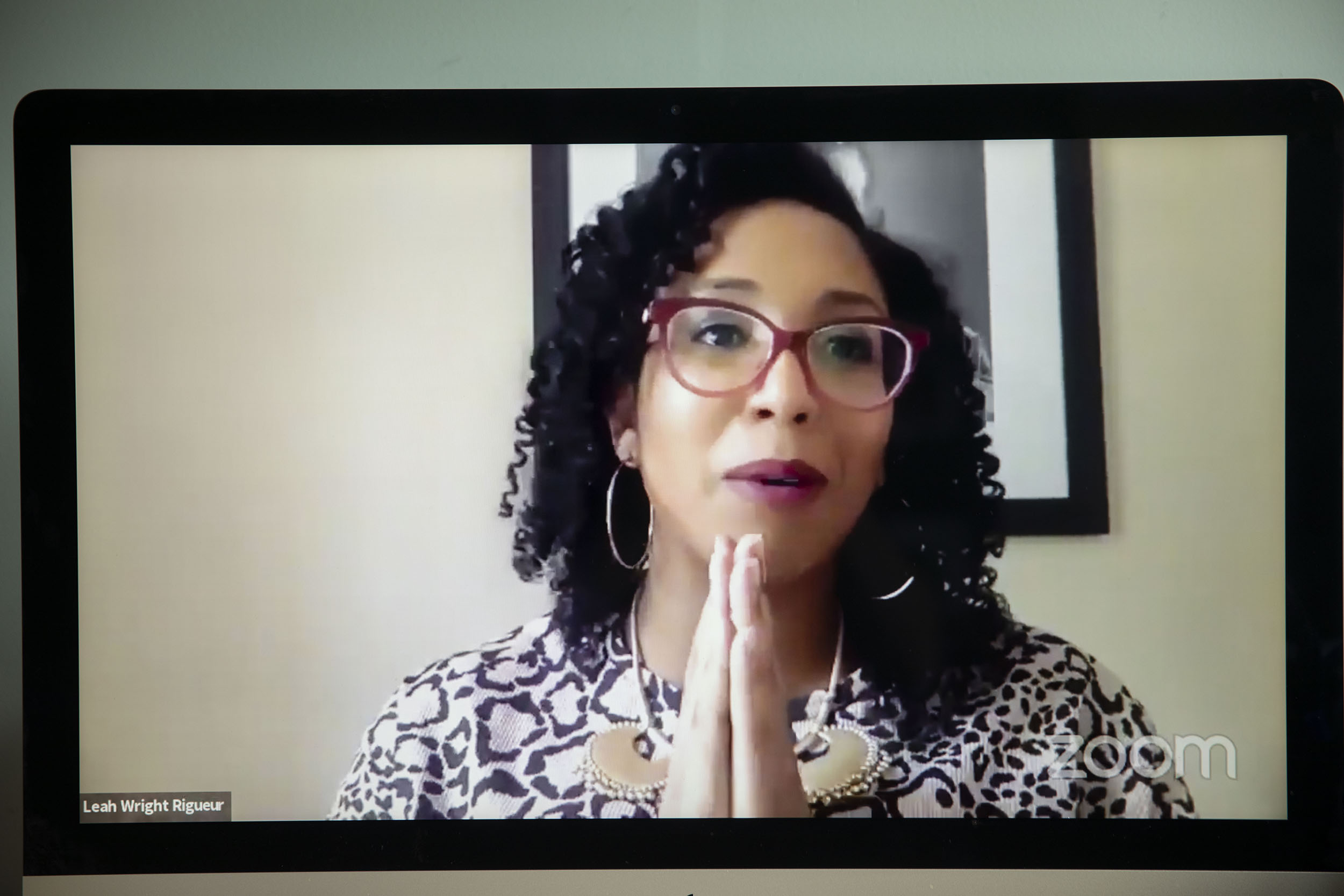
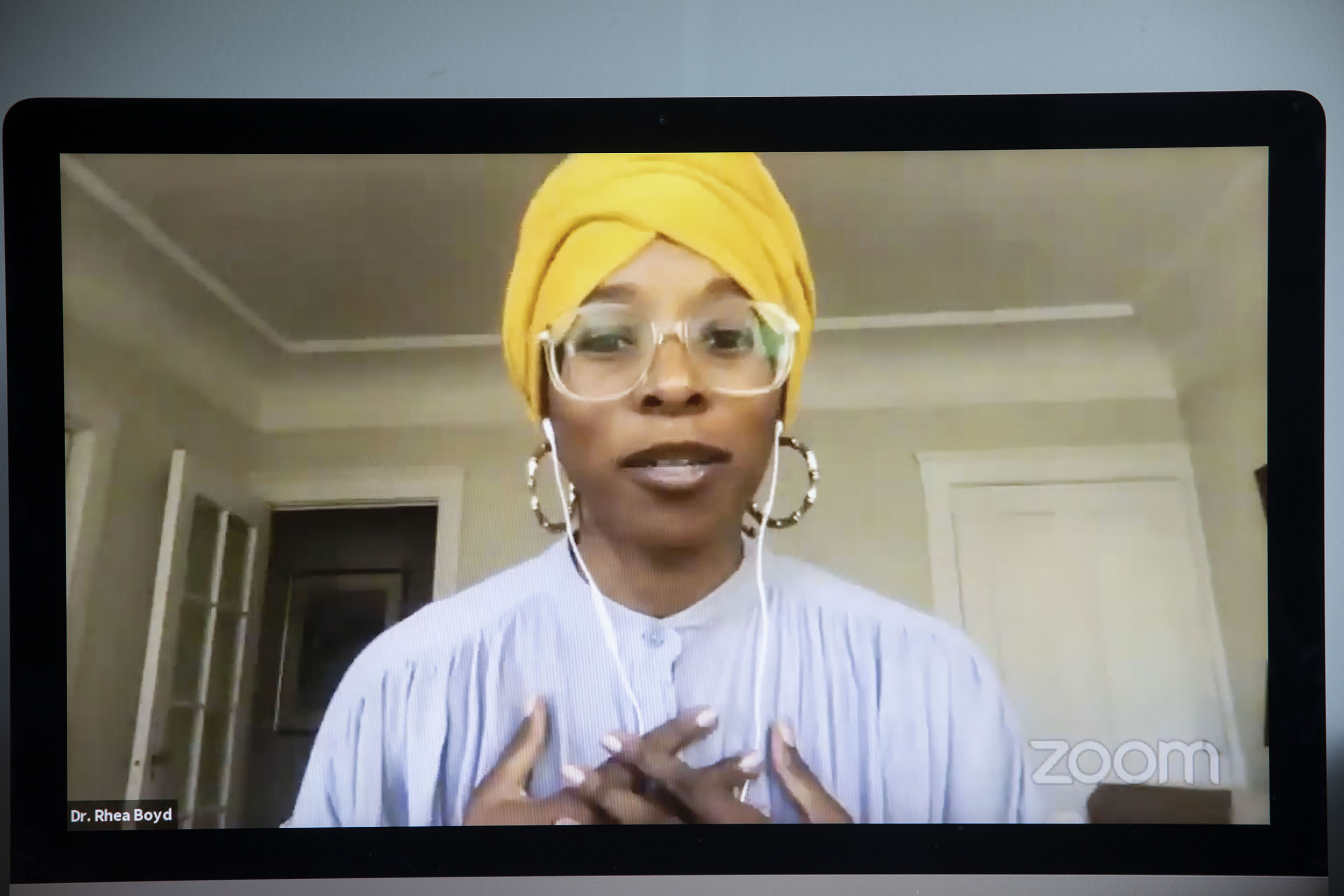
Leah Wright Rigueur, RI ’18, cited the “overlapping failures of America” as the force behind the protests. Rhea W. Boyd, M.D., M.P.H. ’17, described it as the intersections of pandemic, policing, and protest.
In this context, “Black protest actually represents our best chance at a true democracy for all people because it highlights the ways in which democracy doesn’t work for very many,” she said.
Johnson took a deeper dive into American policing, tracing it back to the slave patrols and Indian constables of the 18th century. It was not until the mid-19th century that the modern model of the police began to emerge, she said. Since then, it has grown exponentially, absorbing state and city monies at the expense of social programs and, increasingly, being exported by the U.S. to other countries.
“We’ve seen policing increasing,” she said. “We’ve seen school punishment increasing as we see social welfare systems slashed.”
Boyd spoke about the intersections of pandemic, policing, and protest. Noting the “alarming disparities” in COVID-19 hospitalizations and deaths between white and Black patients, she said that media coverage has highlighted the physical reasons behind the increased susceptibility of populations of color while engaged in what she called “the ritual forgetting of why Black people suffer from poverty and underlying health issues.”
Such vulnerability, she explained, comes not only from generations of poverty and insufficient resources but also from police violence. “Police kill people,” she said, noting number of people killed each year by police — 1,098, according to mappingpoliceviolence.com — and calling it out as a public health problem. Relating those numbers to the pandemic, she pointed out people who witness violence, either in person or on social media, suffer repercussions.
“For kids,” she said, post-traumatic stress from witnessing violence can lead to “headaches, changes in sleep habits, increased isolation.” Throughout the population, “chronic exposure to stress shifts how the human body develops, increases risks of heart disease, lung disease, cancer, and depression.”
“You can’t say increased rates of COVID are simply because of underlying disease,” said Boyd. “We have to make that connection.”
One measure to consider, said Kaneesha Johnson, is the reallocation of funding from the police to community organizers.
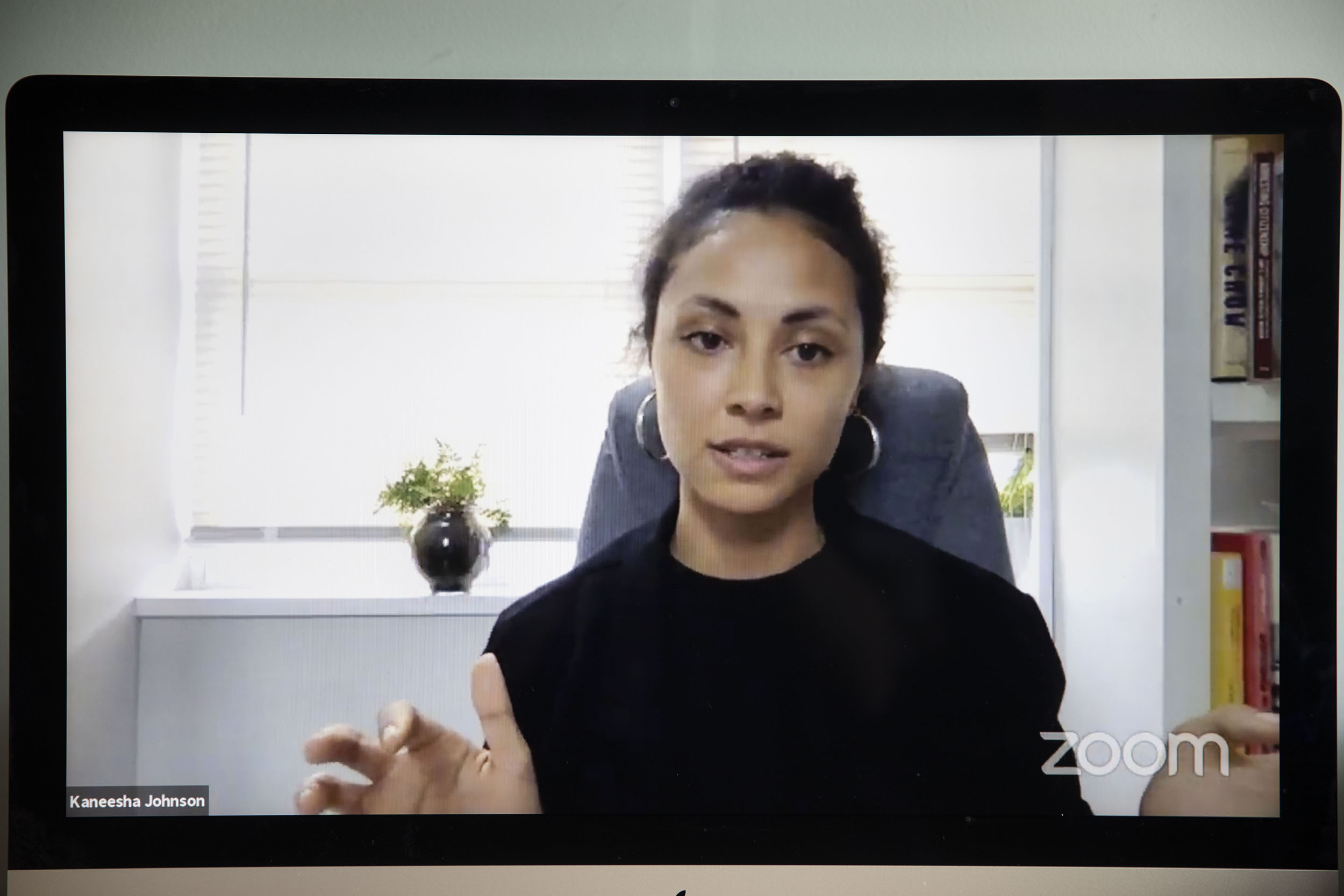
So what steps can society can take next? The answers ran the gamut. While Rigueur stressed that real change will take enormous time and commitment, she joined Johnson in the call to defund the police. In particular, Johnson pushed for reallocation of funding from the police to community organizers. “We need to take the money out of these systems and pass it onto these community organizers, who know how to redistribute it to make these communities safer.”
Boyd advocated for more inclusive health care and for police-free schools. “We need to promise our kids that we will give them a learning environment that is free of the violence and surveillance of the police.”
More like this
Illustrating Boyd’s point, Francis recalled her own years at a public high school, where the police presence was constant, but there was only one guidance counselor for 450 students.
Looking ahead, panelists found cause for hope in the diversity of the current movement. While young people have taken the lead, Johnson noted the movement’s intergenerational component, while Rigueur commented on its multiracial makeup. “It does give me optimism to see white people really questioning the role they can play and the harm they have done in the past and what they can do to rectify it,” she said. “Sustaining this will be crucial to any long-term movement.”
But Boyd acknowledged her fear of backlash to the current movement — or of “hitting the wall” with progress. Nevertheless, she said, “I feel grateful for this space right here.”



